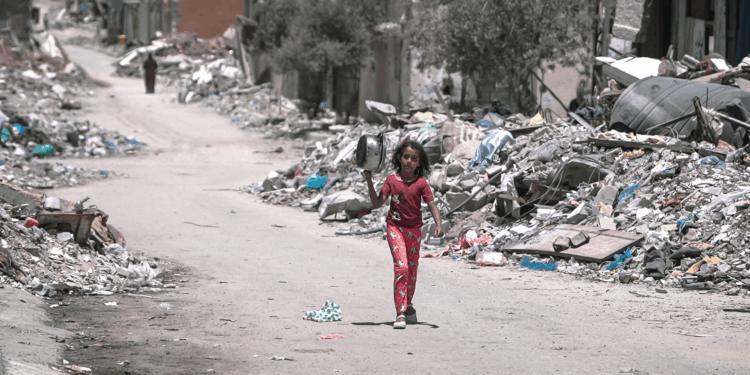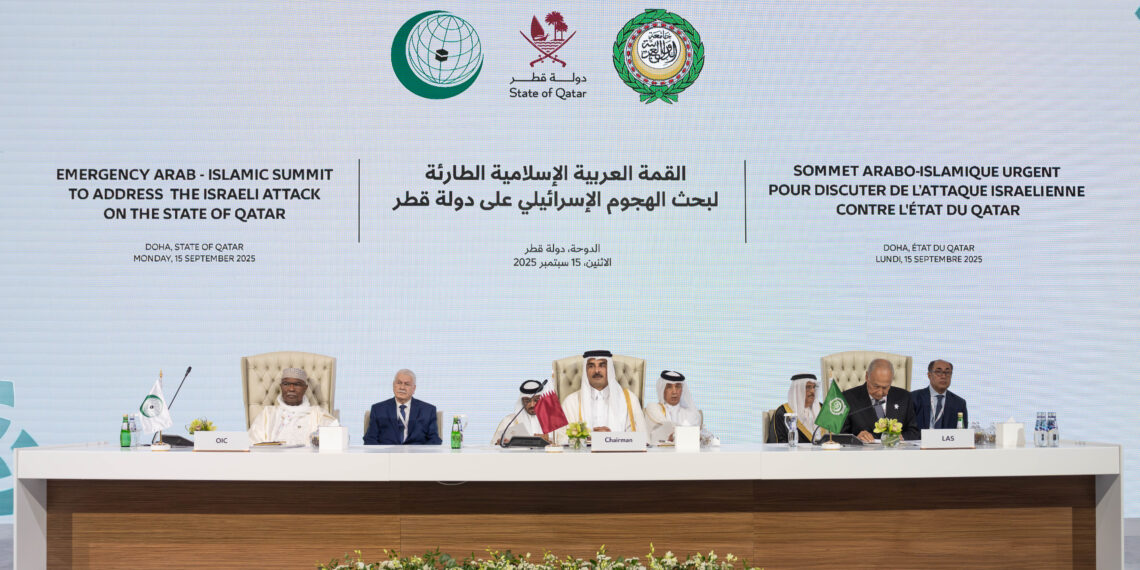The United Nations and several specialized international agencies have declared a widespread famine in the Gaza Strip, the first official declaration of its kind in the Middle East.
The declaration came in a joint statement issued by the World Health Organization, the United Nations Children’s Fund (UNICEF), the World Food Programme (WFP), and the Food and Agriculture Organization (FAO) from Geneva, confirming that more than half a million people in the Gaza Strip are living in conditions classified as famine.
The statement indicated that the number of people suffering from food shortages in Gaza has tripled over the past period, calling for an immediate ceasefire and ensuring the unimpeded flow of food and medical aid to reduce deaths associated with malnutrition and hunger. It also noted that this is the first time a famine has been detected in the Middle East. In parallel, the Integrated Food Security Phase Classification (IPC), an international hunger monitoring agency, issued a report confirming that famine is spreading in the Gaza Strip, warning that acute malnutrition is likely to worsen rapidly by mid-2026.
The Ministry of Health in Gaza indicated that malnutrition has so far led to the deaths of 272 people, including more than 100 children, the latest of whom was a baby girl who died in Khan Yunis, south of the Strip, this morning.
UN Secretary-General António Guterres described the situation as a “man-made disaster,” stressing the need to ensure the delivery of food and medical supplies and emphasizing the importance of an urgent ceasefire. In the same context, Philippe Lazzarini, Commissioner-General of UNRWA, said that the current situation is a direct result of the restrictions imposed for months on the entry of essential supplies into Gaza.
UN High Commissioner for Human Rights Volker Türk also stated that depriving the population of food could amount to a war crime, while other UN officials indicated that famine could have been avoided were it not for the restrictions on aid. For its part, the German Foreign Ministry expressed its grave concern, calling for urgent access for sufficient humanitarian aid.
In response, the Israeli government denied the UN reports, describing them as “fabricated,” asserting that Gaza residents receive sufficient amounts of food daily. The Israeli army also considered the international reports to present an “inaccurate picture” of the situation on the ground.
The UN announcement comes after months of severe restrictions on the entry of humanitarian aid, amid growing international warnings that the continuation of these conditions could lead to an unprecedented exacerbation of the humanitarian crisis in the region.







